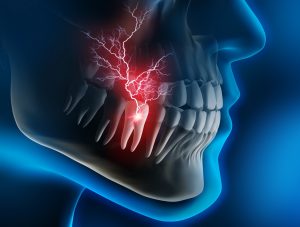 Did you know even an occasional toothache isn’t normal? Your teeth shouldn’t hurt. Tooth pain is a symptom of an issue that may require treatment from an emergency dentist. The type of pain you’re having can help determine what’s behind your discomfort. Here are the most common types of toothaches and how to stay comfortable until you see your dentist.
Did you know even an occasional toothache isn’t normal? Your teeth shouldn’t hurt. Tooth pain is a symptom of an issue that may require treatment from an emergency dentist. The type of pain you’re having can help determine what’s behind your discomfort. Here are the most common types of toothaches and how to stay comfortable until you see your dentist.
Temporary Sensitivity
Sensitivity can occur after dental work or certain treatments, like teeth whitening. However, it can also be caused by enamel loss, decay, fractures, or exposed tooth roots. If hot or cold foods and drinks make you pucker your lips from pain, it’s time to contact your dentist to find out what’s causing your sensitivity.
Dull, Lingering Ache
A dull ache that won’t go away can result from an object stuck in your gums or between your teeth. It can also be a sign of a bigger problem, like an abscess or teeth grinding. You can suffer irreversible damage to your smile with no treatment.
Sharp Pain
A sudden jab of pain when putting pressure on a tooth is a reason for concern, like a fracture, extensive decay, or a failing filling. You’ll be at risk of an infection deep within your tooth if you don’t receive dental care soon.
Severe, Throbbing Pain
A relentless toothache is often a sign of an infection in the tooth. It can be accompanied by other symptoms, like an abscess. It’s unlikely the pain will stop without treatment from a dentist. If your discomfort stops suddenly, it can mean your tooth has died and will need to be extracted.
Managing a Toothache at Home
No one has time for an unplanned trip to the dentist, but a toothache isn’t anything you want to ignore. Delaying treatment can cause a minor concern to progress into a painful, costly situation. It’s best to contact your dentist right away.
While you wait for an appointment, here are a few tips to keep you comfortable:
- Manage Your Pain: Take an OTC pain reliever and apply a cold compress.
- Rinse With Salt Water: Rinse your mouth with salt water to reduce pain and inflammation. It’s also a natural antiseptic to kill bacteria.
- Watch What You Eat: Eat soft foods and chew on the opposite side of your mouth. Avoid cold or hot foods and drinks to prevent sensitivity.
- Change Your Sleeping Position: Sleep with your pillow elevated to prevent blood from pooling in your head, which can cause a throbbing sensation.
Your dentist will pinpoint the problem to provide the quick care you need, so you can enjoy the rest of your day.
About Dr. Pamela West
Dr. West earned her dental degree from the University of Southern California Dental School and has completed extensive continuing education in many specialties, like full mouth reconstruction, cosmetic dentistry, and sleep medicine. She can treat the most complex oral health issues. If you need an emergency dentist, request an appointment through our website or call (702) 240-0404.
